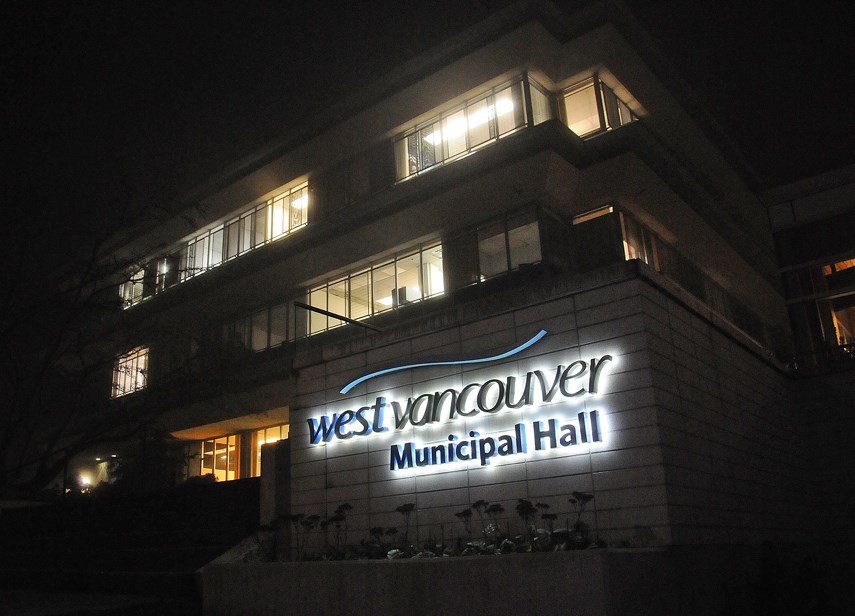The District of West Vancouver moved forward Monday night on adopting a revised $387-million budget that will see taxes go up by two per cent next year.
The increase would mean taxes on an average home in West Vancouver assessed at $2.84 million would go up by about $96, according to the district.
The new budget marks a significant change from a plan introduced earlier this year that would have seen taxes go up by 4.35 per cent.
The new budget – put together in just three weeks by municipal finance staff – reflects West Vancouver’s current pandemic reality, said director of financial services Isabel Gordon.
The revised figures are a “bare bones budget” that reflects a forecasted “significant drop in revenue” said municipal CAO Nina Leemhuis.
The changes to the budget will see approximately $1.8 million in tax revenue cut from the budget, and a loss of about $12 million expected in licences, fees and permits.
Overall, municipal spending in the budget has been cut by approximately $21 million. Areas like library services, recreation and cultural programs – most of them sidelined by COVID-19 – are among those taking the biggest hit.
Gordon told council on Monday overall salary costs have been reduced by about $3.5 million through cutting of casual and temporary employees and a hiring freeze until the end of the year.
Leemhuis said the municipality is currently operating at essential service levels, which includes staff in finance, communications, police, fire, engineering and waste collection remaining on the job.
But she hinted further staff cuts or rollbacks at municipal hall could be in the works, saying the district is currently in discussions with both its unionized workers and management staff. “We’re hopeful that will be concluded relatively quickly,” she said.
Gordon urged council to move forward with the revised budget, which must be adopted by May 15, saying it wouldn’t be realistic to make further significant changes. “It’s our best effort at this point,” she said.
But she added it’s likely there will further budget amendments based on both “what the public and community feel is appropriate” and how the COVID-19 situation and related public health orders change in the coming months.
Some changes to the budget – including staff reductions – aren’t simple to carry out, she said, and involve both union agreements and weighing of issues like severance pay against savings.
“We will be doing at least one budget amendment, probably several,” she said.
Gordon said the municipality has assumed that some form of social distancing will be in place until the end of August and likely beyond that. “We’re trying to take a conservative view,” she said. “We’re not assuming we’d go back to business as usual on Sept. 1.”
Coun. Bill Soprovich raised concerns about how the pandemic closures are hitting small businesses hard. If closures last much longer, “We’re going to see some major casualties in mom-and-pop stores,” he said, asking if there was anything the municipality could do.
Gordon said West Vancouver has among the lowest business tax rates in the Lower Mainland. She said council could lower the rate further, but it would have to apply to all business class properties, meaning the largest benefit would go to larger commercial properties, not small businesses.
Gordon added council currently has no way to force business property owners to pass on tax reductions to their commercial tenants, who generally pay the taxes under triple net leases.
Another dark cloud looming for local municipalities is cash flow, which will depend on how many homeowners actually pay their property tax bills on time by July 1. In a normal year, about 80 per cent of owners pay their tax bills within one month, said Gordon.
But if a significant number don’t, it will spell trouble for local governments. This year, municipalities have been told by the province they must submit all levies – including those collected for other governments – by the end of August, whether or not they have be paid by taxpayers.
So far the only option the province has suggested to help cash-strapped municipalities is to allow them to take out a loan.
“They let us dig a hole that we then have to figure out how to get out of,” said Mayor Mary-Ann Booth.
Councillor Craig Cameron said the budget reflects the high level of uncertainty around the pandemic and what’s going to happen in the coming months. Budgeting has become “an almost impossible task,” he said. “We’re all in uncharted territory.”
“Personally I feel there’s going to be a very strong impetus to get the economy moving again,” he said. “I don’t think we can afford to live in this shutdown economy for very long.”
Cameron said it’s easy for critics to “armchair quarterback this budget and say what about this, what about that?”
“Is this budget perfect? No, but its definitely a good start,” he said.
Council passed third reading of the budget bylaws unanimously, opting to delay final adoption of the revised budget to the next council meeting April 27.
Staff plan to post a question and answer about the budget on the municipality’s website to give the public more information.



